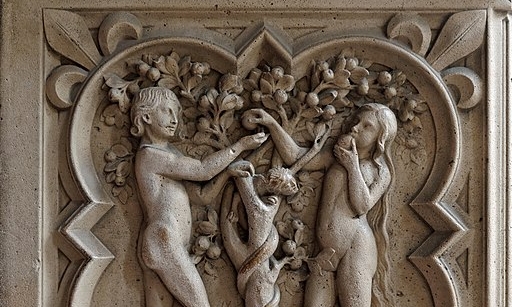Saint Therese of Liseux, four months before her death, pondered the forgiveness of God upon which she had relied her whole life. Thinking of a particular lapse in patience toward a sister who later showed her much kindness, she wrote:
I confess I am much happier because of my weakness than if—sustained by grace—I had been a model of patience. It does me so much good to see that Jesus is always sweet and tender towards me. Truly it is enough to make me die of grateful love (Letter to Mother Agnes of Jesus, May 28, 1897).
One may suppose that St. Therese was just looking for another opportunity to think of Jesus. By mental gymnastics she managed to associate him with whatever was on her mind. But her insight is simpler than all that. It’s just good metaphysics.
Evil, as they teach you in Thomist boot camp, is a privation. It is what happens when something good is missing. Blindness is only a bad thing because we are supposed to be able to see. Evil is by the same token an acute reminder of the good that is missing. If our sight becomes sub-optimal, we see an optometrist. We appreciate health the most in times of sickness.
Likewise, sin cries out for God’s mercy. God, however, is not like an optometrist. The best an optometrist can do is to restore our sight to what it used to be. Even so, most of us would prefer not to have needed glasses in the first place. Yet Therese knew that God can do so much more.
In the beginning, nothing was missing. Our first parents lived in perfect harmony with God and each other, and they both enjoyed an interior harmony. Unfortunately, the serpent tricked Eve by telling her that she would gain wisdom and be like God if she ate from the tree. With that first sin, our first parents were banished from the garden and the tree of life. But that evil—that missing harmony—entailed a promise: one day the seed of the woman would crush the serpent’s head. Evil cries out for a remedy. Sickness pleads for health.
The remedy was the Wisdom of God incarnate, Jesus Christ. The devil worked his worst evil yet when he instigated men to nail the Son of God to a cross. But the divine artist was powerful enough even to make out of the devil’s masterpiece the tree of life. From this tree—from the blood and water flowing from the side of Christ—we receive a share in the divine life. Christ our remedy not only restored what was missing: he made something entirely new.
Sin is a powerful snare. The devil knows that if we see the mess in our lives we may lose heart. Seeing how far we are by our own fault from our heavenly Father, we may feel like giving up. Yet Saint Therese saw that every sin is a signpost pointing to the mercy of God. Whatever wicked arts the serpent works in our lives, God can fashion something all the more beautiful just as he wrought our redemption from the cross. Sin should not suffocate us in our own sordidness. Instead, our misery should make us remember God’s mercy. That’s just good metaphysics.
As Christians we look forward to the day when, free of all evils and earthly cares, we will gaze with simplicity upon the mercy God. There we will see the handiwork of the divine artist in every good we have done and every suffering we have endured, even in his response to our sin. As St. Therese tells us, “Truly it is enough to make me die of grateful love.”
✠
Image: François de Dijon, Détail de la Sainte Chapelle, (Wikimedia Commons)







